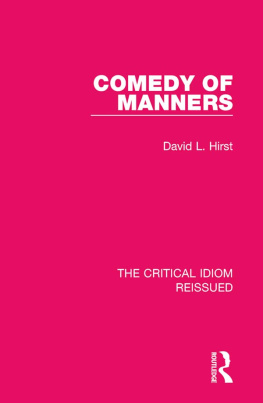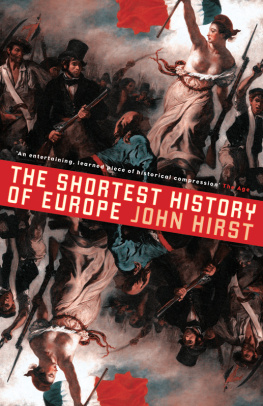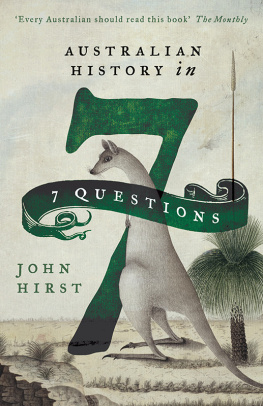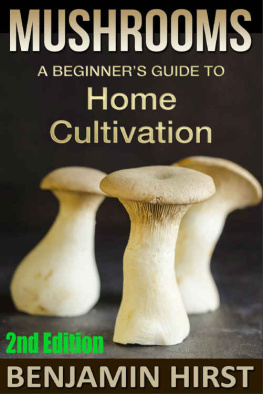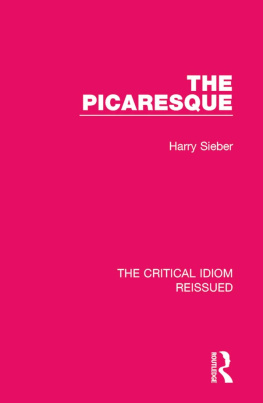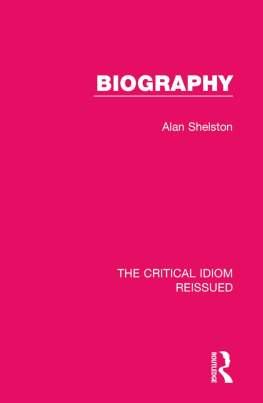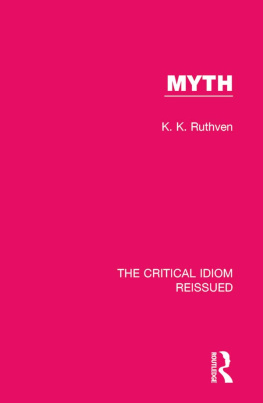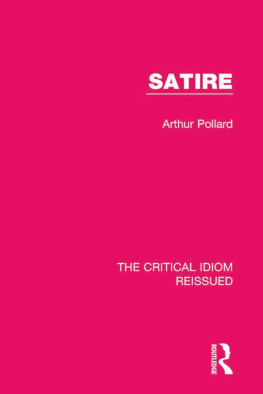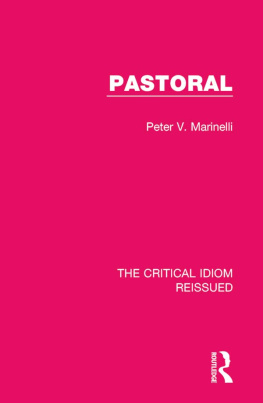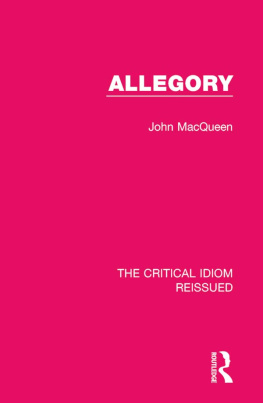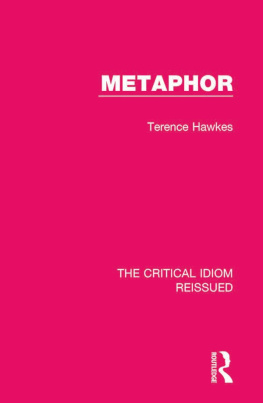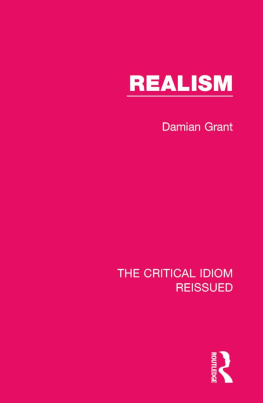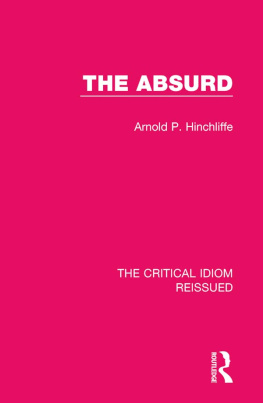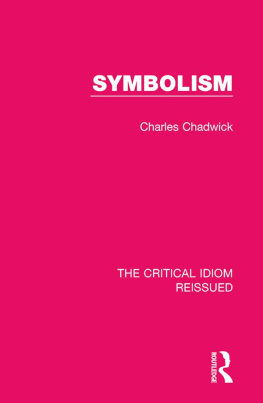Table of Contents
Guide
Print Page Numbers
THE CRITICAL IDIOM REISSUED
Volume 36
COMEDY OF MANNERS
COMEDY OF MANNERS
DAVID L. HIRST
First published in 1979 by Methuen & Co Ltd
This edition first published in 2018
by Routledge
2 Park Square, Milton Park, Abingdon, Oxon OX14 4RN
and by Routledge
711 Third Avenue, New York, NY 10017
Routledge is an imprint of the Taylor & Francis Group, an informa business
1979 David L. Hirst
All rights reserved. No part of this book may be reprinted or reproduced or utilised in any form or by any electronic, mechanical, or other means, now known or hereafter invented, including photocopying and recording, or in any information storage or retrieval system, without permission in writing from the publishers.
Trademark notice: Product or corporate names may be trademarks or registered trademarks, and are used only for identification and explanation without intent to infringe.
British Library Cataloguing in Publication Data
A catalogue record for this book is available from the British Library
ISBN: 978-1-138-21971-7 (Set)
ISBN: 978-1-315-26975-7 (Set) (ebk)
ISBN: 978-1-138-28400-5 (Volume 36) (hbk)
ISBN: 978-1-315-11520-7 (Volume 36) (ebk)
Publishers Note
The publisher has gone to great lengths to ensure the quality of this reprint but points out that some imperfections in the original copies may be apparent.
Disclaimer
The publisher has made every effort to trace copyright holders and would welcome correspondence from those they have been unable to trace.
Comedy of Manners
David L. Hirst
First published 1979
by Methuen & Co Ltd
11 New Fetter Lane, London EC4P 4EE
1979 David L. Hirst
ISBN 0 416 85590 3 (hardbound)
ISBN 0 416 85570 9 (paperback)
This title is available in both hardbound and paperback editions. The paperback edition is sold subject to the condition that it shall not, by way of trade or otherwise, be lent, resold, hired out, or otherwise circulated without the publishers prior consent in any form of binding or cover other than that in which it is published and without a similar condition including this condition being imposed on the subsequent purchaser.
Contents
For TONY
I must thank Robin Allanson and Tadeusz Karolak whose generosity and hospitality made this book much easier to write; and Pat Davis who kindly typed the final version.
You must beware of thinking too much about style, said my kindly adviser, or you will become like those fastidious people who polish and polish until there is nothing left.
Then there really are such people? I asked eagerly. But the well-informed lady could give me no precise information about them. I often hear of them in this tantalising manner, and perhaps one of these days I shall have the luck to come across them.
(Logan Pearsall Smith, Preface to All Trivia, 1933)
When John Osborne called his play The End of me Old Cigar (1975) a modern comedy of modern manners he drew attention to the fact that this genre of comedy, which dominated the immediate post-Restoration period, has continued as a vital aspect of English theatre to the present day. One can trace a line of development from the playwrights of the second half of the seventeenth century through Sheridan and Goldsmith in the eighteenth, W.S. Gilbert and Wilde in the nineteenth to the interwar comedies of Maugham, Coward and Lonsdale. More recently Orton, Pinter and Osborne have achieved a more marked dramatic precision by adopting the features of this comic mode.
The subject of comedy of manners is the way people behave, the manners they employ in a social context; the chief concerns of the characters are sex and money (and thus the interrelated topics of marriage, adultery and divorce); the style is distinguished by the refinement of raw emotional expression and action in the subtlety of wit and intrigue. The comedy of manners is at its most expressive when all three of these aspects interact. But it is possible to have one without the others: Sheridan, for example, is all superficial style; Cowards Hay Fever is a perfect comedy of manners in its subject, but it has no concern with money and is far less witty than his finest works. Style is allimportant in these plays. By style is meant not merely a superficial manner of expression but a definition of behaviour. The winners are always those with the most style: the sharpest wits, the subtlest intriguers. This has led to the repeated charge that the comedy of manners is immoral and unpleasant. It is undoubtedly the most antiromantic form of comedy, for in plays of this type the conventional moral standards are superseded by the criterion of taste, of what constitutes good form.
Ortons Loot ends with the observation: People would talk; we must keep up appearances, a belief basic not only to his plays but to the genre as a whole. Such a comment is an echo of Popes satiric lines in The Rape of the Lock where Belinda regrets:
Oh hadst thou, cruel, been content to seize
Hairs less in sight, or any hairs but these!
(Pope, The Rape of the Lock, IV, 4. 11. 1756)
Actions rape, robbery, murder, adultery are unimportant; what matters is the way in which they are performed, or more often the style with which they are concealed. Whether it be the careful euphemisms Ortons characters employ, the wit of Mirabel and Millamant, the clipped tones of Elyot and Amanda, or the epigrams of Wildes exquisitely refined ladies and gentlemen, the keynote of these plays is decorum. This has given rise to another criticism: that of a shallowness and lack of sincerity in the characters and their authors. The unscrupulous sexual and monetary acquisitiveness of these figures may initially seem at sharp variance with their refinement of speech, though it is not merely their actions, but, more importantly, the manner in which these characters conduct themselves that secures their victory. They are playing a game, perhaps, but in deadly earnest and for the highest of stakes; and, moreover, they must stick to the rules. These rules are societys unwritten laws regulating behaviour, the dictates of propriety which, though they may differ in detail from age to age and class to class, are always basic to the conduct of the characters in the comedy of manners.

